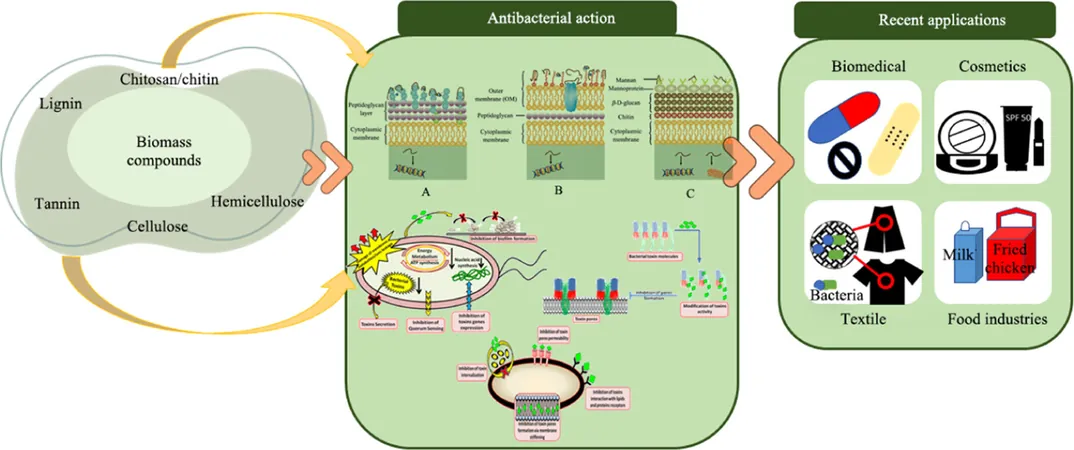
How Biopolymers from Biomass Could Revolutionize Antimicrobial Solutions
2024-10-07
Author: Yu
In an innovative approach to tackle the escalating crisis of antibacterial resistance, researchers at the Research Center for Biomass and Bioproducts, part of Indonesia's National Research and Innovation Agency (BRIN), have conducted a pivotal study exploring the potential of biomass-derived antibacterial agents. Led by Nissa Nurfajrin Solihat alongside a team of international experts, this research sheds light on the impressive capabilities of naturally abundant biopolymers in creating sustainable antibacterial solutions.
The urgency for novel antibacterial compounds has never been greater, as highlighted by the World Health Organization's acknowledgment of bacterial resistance as a pressing global health crisis. This ground-breaking research spotlights various biomass derivatives, including polysaccharides like cellulose, hemicellulose, and chitosan, as well as polyphenolic compounds such as tannin and lignin; all of which have shown remarkable potential in inhibiting the growth of both Gram-positive and Gram-negative bacteria.
"Most antibacterial agents available today are sourced from non-renewable materials, which leads to significant health and environmental consequences," remarks Solihat. "Our research aims to fill the existing knowledge gaps regarding the antibacterial properties of biomass derivatives, which are not only plentiful but also sustainable."
The findings of the team present a thorough overview of the current landscape of biomass-derived antibacterial agents, the hurdles yet to be overcome, and the promising outlook for the future. It emphasizes the necessity of understanding the origins of these materials, their chemical modifications, their efficacy against various bacterial strains, and the mechanisms through which they inhibit bacterial growth. Such insights are crucial for integrating biomass derivatives into product development.
Among the most striking revelations is the potential use of these biomass derivatives as antibacterial additives across diverse sectors, including cosmetics, healthcare, food processing, and textiles. The research suggests that combining these natural agents with cutting-edge technology, such as silver nanoparticles, could amplify their antibacterial effectiveness, paving the way for enhanced formulations.
Ultimately, this study is a significant contribution to the ongoing global efforts aimed at developing sustainable, eco-friendly alternatives to traditional antibacterial compounds. As the world grapples with the implications of increasing antibiotic resistance, research like this could hold the key to revolutionizing how we approach infection control in the future. Would you trust biologically sourced antibacterials over synthetic options? The answer may reshape the industry landscape!

 Brasil (PT)
Brasil (PT)
 Canada (EN)
Canada (EN)
 Chile (ES)
Chile (ES)
 España (ES)
España (ES)
 France (FR)
France (FR)
 Hong Kong (EN)
Hong Kong (EN)
 Italia (IT)
Italia (IT)
 日本 (JA)
日本 (JA)
 Magyarország (HU)
Magyarország (HU)
 Norge (NO)
Norge (NO)
 Polska (PL)
Polska (PL)
 Schweiz (DE)
Schweiz (DE)
 Singapore (EN)
Singapore (EN)
 Sverige (SV)
Sverige (SV)
 Suomi (FI)
Suomi (FI)
 Türkiye (TR)
Türkiye (TR)